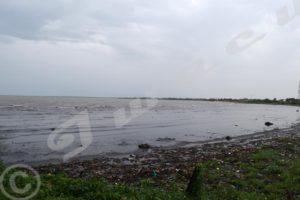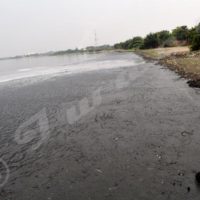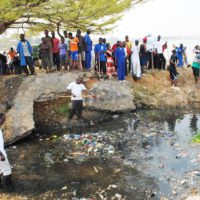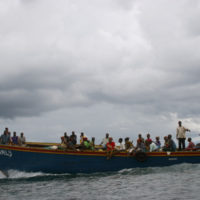Lake Tanganyika is currently being threatened because all wastes from factories and households are dumped directly at it without being treated. This was observed during a visit carried out in factories close to the place commonly known as “Ku mase” by the technical commission in charge of securing the lake navigation. The commission accuses the Municipal Technical Services-SETEMU of being the key source of pollution of the lake.

Lake Tanganyika continues to be polluted
The members of the commission made a surprise visit of control in 3 factories considered pollution sources of Lake Tanganyika this 19 October. The technicians of the SETEMU said the main cause of this pollution would be the non-functioning of the Setemu pumps which have been closed for almost 3 years.
According to a technician of the SETEMU, the government would have ordered three pumps
This technical commission has made a surprise inspection visit to some factories. The Afritan tannery, which was suspended on August 8 amid allegations of polluting Lake Tanganyika, was the first on the list. The managing director of this factory, Bede Bedetse, rejects these accusations.
He showed the members of this commission the pre-treatment procedures of residues from the factory which pass through a SETEMU sewer located inside Afritan installations. “We treat the waste waters before sending them to the SETEMU company. Unfortunately, the pumps are no longer functional, he says.
The same visit has been also conducted on Rushato, another tannery located at 300 metres from Afritan, which does not properly handle its waste and to the ‘SAVONOR company as well. However, the latter is not connected to the SETEMU pipes which pollute the lake via the Nyabagere River.
The chairman of the Technical Commission in charge of securing the lake navigation, Gerard Nyandwi, says the SETEMU are faced with a financial problem. ‘It’s been almost three years the municipal technical services pumps are not working. These services can no longer process wastes, he says.
The Global Nature Fund [GNF] reported that sedimentation, pollution and overexploitation ranked Lake Tanganyika as the ‘most threatened Lake’ in 2017.



















 IWACU Open Data
IWACU Open Data

